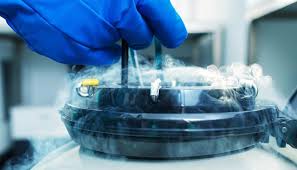Fertility Preservation for Cancer Patients
For young persons, a cancer diagnosis can be very traumatizing. Treatments that can be lifesaving can also be life threatening to fertility. At the Procare Hospital and Fertility Center, we are available to counsel patients with a new cancer diagnosis regarding the risk their cancer treatments may pose to their fertility processes.
Below, our experts answer commonly asked questions about the impact specific treatments have on fertility and the fertility preservation options we offer, which include embryo, oocyte, ovarian tissue and embryo cryopreservation.
Embryo Cryopreservation
In-vitro fertilization followed by cryopreservation (freezing) of the fertilized eggs can provide an opportunity to have a pregnancy after treatment for cancer is completed. This procedure involves treatment with injectable fertility medications to stimulate development of multiple eggs. The eggs are retrieved in a procedure performed under anesthesia, called an oocyte retrieval, and fertilized with the partner’s (or donor) sperm and then frozen. The whole process generally requires two to four weeks.
IVF with cryopreservation of embryos has been used extensively for infertility treatment since the early 1980s and is considered a safe and routine procedure. The embryos can be stored for a number of years until cancer treatment is completed. Even if the cancer treatment results in ovarian failure, the woman can be given hormones to mimic a normal ovulation cycle and have the embryos transferred back to the uterus by a simple outpatient procedure.
The chance of pregnancy is about 30 to 50 percent each time one to two embryos are returned to the hormonally prepared uterus (pregnancy rate is dependent on maternal age at the time the embryos were created). If several high grade embryos can be produced and stored, that should give the couple a reasonably good chance of achieving a pregnancy at a later date. Sometimes this is not possible because of the need to start cancer treatment quickly. An IVF cycle takes about two weeks to complete, and we can often start controlled ovarian hyperstimulation to harvest eggs on a random day during a woman’s cycle.

